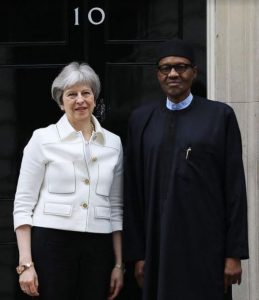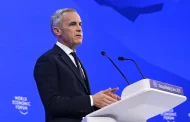The idea of a Government of National Unity, (GNU) as a way out of the present security impasse is no longer as a remote as it was before. A curious amalgam of the elite is beginning to see it as the only saving grace for Nigeria from explosive consequences of cumulative bitterness and rising out-of-character-group behaviours.
The idea which is already being canvassed but not yet loudly by high profile members of the elite is that it would be foolhardiness to expect a Federal Government run by one political party in a nation of 200 million to take Nigeria out of the current impasse. The country cannot move forward on a partisan basis, says those already doing the legwork for the innovation because, in their argument, the problems are too many and the divisions are too deep that no solution would work without more innocent people being killed. The fear is that the more people are killed, the more the chance of such killings going out of hand.
For those associated with this campaign, it is now a matter of commonsense and urgency to save the nation by going for a GNU govt under the same president. “This has become a necessity, something needed to contain the insecurity and recommit everyone to the nation”, said one of its movers who contend that the country is at its wits end and in a cul de sac. The belief is that the Government is being contested and bitterness is very extreme across the country, with things getting worse even as the rulers and their advisers have done everything they could.
As the argument also goes, it is the polity which is sick. “It is the sickness of the polity which has endangered national security”. Changing service chiefs, the option said to be in the pipeline and which some notable politicians have been canvassing, is no longer enough or capable of being the magic wand.

GNU also an agenda roused by an elite pleased but equally angered by Nigeria being a subject of a rescue session in the British Parliament in the year 2018, 58 years after independence
“If the House of Lords would be concerned enough to table Nigeria, mentioning the existence of 380 million guns, then it must be people who either do not know what truth is or who hate truth in preference for living in denial for anybody to think we can walk out of danger by going along the existing track”, Intervention was told by the same voice insisting that who is doing the killing is no longer as decisive an issue as stopping the killing because “if the government cannot stop the killings but can also not deal with whichever groups it believes to be sponsoring it, local or foreign, then it is simply saying the people should pay for its own lack of wherewithal to deal with the situation”.
Additional to this line of thinking is the notion that if the opposition the president says are the ones hiring the killers is that strong to have been doing so without being stopped, then they can bring in more killers and do more havoc.
The case is also anchored on rising inequality and extreme poverty, the claim that these have reached their zenith as never before as to make a free and fair election impossible or possible without getting the country into a worse confrontation with fate. There is the added point about a GNU providing an opportunity for shifting the date for swearing-in of new presidents back to October 1st , 2019 instead of May 29th which has no historical significance for Nigeria.
Reference is also being made to the early days of General Gowon when there was said to have been the leaders of thought who were consulted. The analysis is that the situation now is much worse than Biafra because Biafra was one front, one area. Now, there are several fronts, from Boko Haram in 2015 when the government came in to Kaduna, Zamfara, Benue, Taraba and Plateau aside from criminality and corruption. Instead of being contained, insecurity has been expanding beyond Boko Haram in 2015. Once again, the question of what is to be done and by whom!
As some of the emerging leaders of the movements for GNU are not politicians or political office holders, the question of how they can bring this into effect appears to be hanging. Intervention as Intervention has called for a GNU several times as a mechanism for widening the social base of the Buhari regime, (“Calm and Reconcile Nigeria Instead”, February 27th, 2017; “Caught Between Angry Elite and Hungry Masses, What are President Buhari’s Options on Arrival?”, July 31st, 2017 and “Osinbajo Warns on Plateau, Refocusing Nigeria’s Boiling Point Politics in a Ruptured World”, June 26th, 2018). This time, however, it has assumed a single item movement rather than advocacy. It is still not clear how soon those doing the legwork would have moved around Nigeria’s many centres of power and how a GNU rhymes with what such centres might be thinking on the ways forward.
But a GNU is seen as an opportunity to force open the space in favour of collective wisdom of all those who have such wisdom and are transparently worthy of nomination into a GNU. Only time will tell how it all works or fail to work. This dimension is, however, a significant one with particular reference to the belief in several quarters that those waiting for the 2019 election to decide President Buhari’s electoral fate might be wasting their time because the president might substitute himself with a “heir apparent”. In the June 12th, 2018 report “June 12 Revivalism Complicates Power Game in Nigeria”, Intervention had reported President Buhari’s June 12 revivalism as a positioning of Ambassador Babagana Kingibe in terms of a fall back successor candidate in the same manner General Babangida behaved when he was scared off in 1993. Nearly two weeks after the analysis by Intervention, Alhaji Abdulkadir Balarabe Musa, the former governor of Kaduna State in the Second Republic sort of confirmed it in a Sunday Sun interview, titled Award to Promote Kingibe”, (June 24th, 2018, p 28).




























